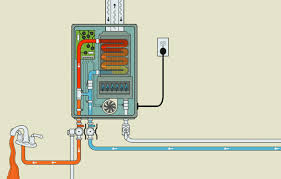
.jpg)

The days are getting longer, and the temperatures are starting to climb. Before the full heat of summer arrives, now’s the perfect time to prepare your home—and your energy bills—for what’s coming. At Crossville Heating and Cooling, we’re offering free energy inspections to help you get ahead of the season and stop wasting money on inefficient systems.
Before your AC kicks into high gear, take a few steps to reduce waste and boost comfort:
We’ll send a professional to your home to:
This inspection could reveal energy drains that are costing you now—and will only get worse in the heat.
Waiting until summer hits means paying higher bills and dealing with emergency repairs. Beat the rush and get ahead of energy spikes with a free inspection from Crossville Heating and Cooling.
Whether it’s a leaky pipe, a noisy AC unit, or rising energy costs, we’re ready to help 24/7. Crossville Heating and Cooling has been keeping homes comfortable since 1982—reliable, professional, and fast.
Before your system gets pushed to its limit, let us give it a once-over. We’ll help you save money now and when summer officially arrives. P.S. We’re also offering free generator consultations to keep your home prepared for spring and summer storms. Call today to schedule.

Yes, mini split systems can both heat and cool your home. They switch the refrigerant flow to move heat from one place to another. This can either cool the indoor air or warm it up.
Dirty mini-splits can carry allergens and block airflow. This lowers indoor air quality and raises energy bills. Cleaning them regularly keeps them efficient, cuts costs, and betters air quality.
You'll often find the main water shutoff valve in the basement, crawlspace, or near the water heater. It might also be on an exterior wall or in the yard.
A mini split system, also known as a ductless HVAC system, moves heat from one area to another. It doesn't need ducts and keeps your house warm or cool everywhere.
Technicians get to the unit's parts, vacuum and brush them to clear out dirt. Then, they use a disinfectant to clean the coils and parts before putting everything back together.
There are two main types: gate valves and ball valves. Ball valves are better because they're reliable and easy to use.
The outdoor unit controls the refrigerant flow to the indoor air handlers. This decides whether to heat or cool the air. Then, the indoor units circulate the air in the room.
Cleaning by pros boosts efficiency, cuts energy bills, and betters indoor air quality. It also makes the system last longer and gives you peace of mind.
To shut off the valve, turn the handle or lever clockwise until it stops. For gate valves, turn the circular handle clockwise. For ball valves, turn the lever 90 degrees to the water line.
Mini splits give you control over different areas of your home, save energy, run quietly, and can both heat and cool.
Mini-split systems have indoor units in each room, linked to an outdoor compressor. The air gets cooled as it goes to the compressor and then flows back into the room without ducts.
If it's stuck, use channel lock pliers to gently tighten the packing nut. If leaking, tighten the bleeder valve with your fingers or pliers. If it still leaks, you might need a new valve from a professional plumber.
Mini splits beat traditional HVAC systems by offering precise temperature control, saving energy, and cooling and heating without ducts.
If your mini-split has weak airflow or strange smells, it might mean dirt, dust, and debris are building up. This can block airflow and create places for mold and bacteria to grow.
Turn it off in a plumbing emergency, like a burst pipe or leaking appliance, to stop water flow and prevent damage. Also, turn it off before leaving for a long time to avoid leaks or flooding.
Mini split systems are very energy-efficient, often using 60% less energy than standard electric heating. Many are ENERGY STAR certified, meeting strict energy-saving standards.
Pick a company with licensed, insured techs who use top-notch gear. They should follow the highest cleaning and maintenance standards for mini-splits.
If you can't find the valve or it's stuck, call a professional plumber. They can find the valve, even if it's hidden, and replace a faulty one.
Installing mini splits is easy since they don't need ducts. Keeping them running well just means cleaning the air filters regularly.
Clean the area around the indoor unit, make sure the tech can reach electrical outlets if needed, and have any questions or concerns ready to talk about.
Keep it working well by checking and maintaining it regularly. Turn the valve on and off to ensure it moves easily. Watch for leaks or corrosion and fix them quickly to prevent damage.
Mini split systems are built to last, usually 15 to 20 years with the right care.
Follow the maker's advice for changing filters and cleaning coils now and then. Fix any problems quickly to keep the system running well and efficiently.

.jpg)
.jpg)
.jpg)
.jpg)







